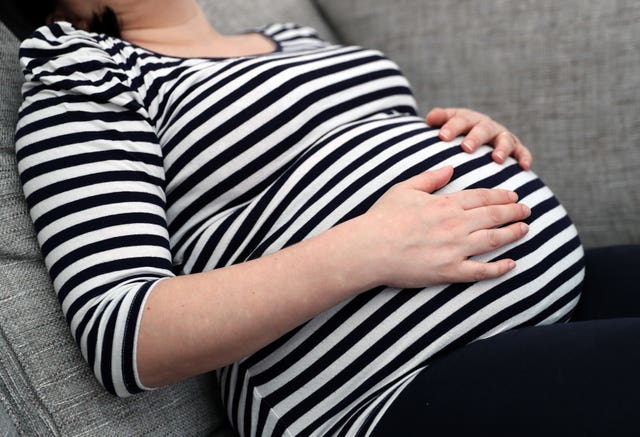
Vanessa Feltz 3pm - 6pm
14 January 2021, 12:44

Women may be typically left with an income shortfall of £12,852 due to taking 12 months’ maternity leave, according to Direct Line Life Insurance.
Just over three-quarters of mothers have had to find ways to cover income gaps due to taking maternity leave, a survey has found.
As the average year-long maternity leave may typically only cover around 54% of a woman’s salary, mothers have had to find ways to make up the typical shortfall of £12,852 compared with if they had been working, according to Direct Line Life Insurance.
Its research found that 76% of recent or expectant working mothers have had to find a way to cover the loss of earnings during their maternity leave.
The most common ways recent and expectant mothers have looked to save money are on everyday shopping such as groceries and clothing.
Nearly a fifth (19%) of mothers have been given financial help by friends or family members.
For some, the loss of income has meant relying more on the other household income, with 17% saying their partner had to work longer hours and 13% reporting their partner had to get a second job.
Some 16% of mothers said they had worked longer hours themselves before going on maternity leave.
Just under a fifth (18%), however, said they were in a secure enough financial position not to need to consider covering the shortfall.

Just over a third (35%) of expectant mothers or those who have recently had a child planned to, or had already, returned to work on the same hours they were on before maternity leave, the survey found.
Chloe Couper, business manager at Direct Line Life Insurance, said: “Having a child is one of the most important life events anyone can go through and it’s important parents are able to take time off work and focus on their new arrival.
“It can also be a stressful time and put pressure on the family finances, both from the cost of having a baby and from losing income.
“Where possible, parents may wish to set aside funds before their baby is born to cover the shortfall in earnings in order to have a longer period of parental leave.
“When thinking about a more secure financial future, new parents can also explore protection products such as life insurance and critical illness cover that will pay a lump sum if the worst happens, which can help provide a safety net for the family.”
– More than 2,000 people were surveyed across the UK and and a survey of 100 HR professionals was also carried out for the study.